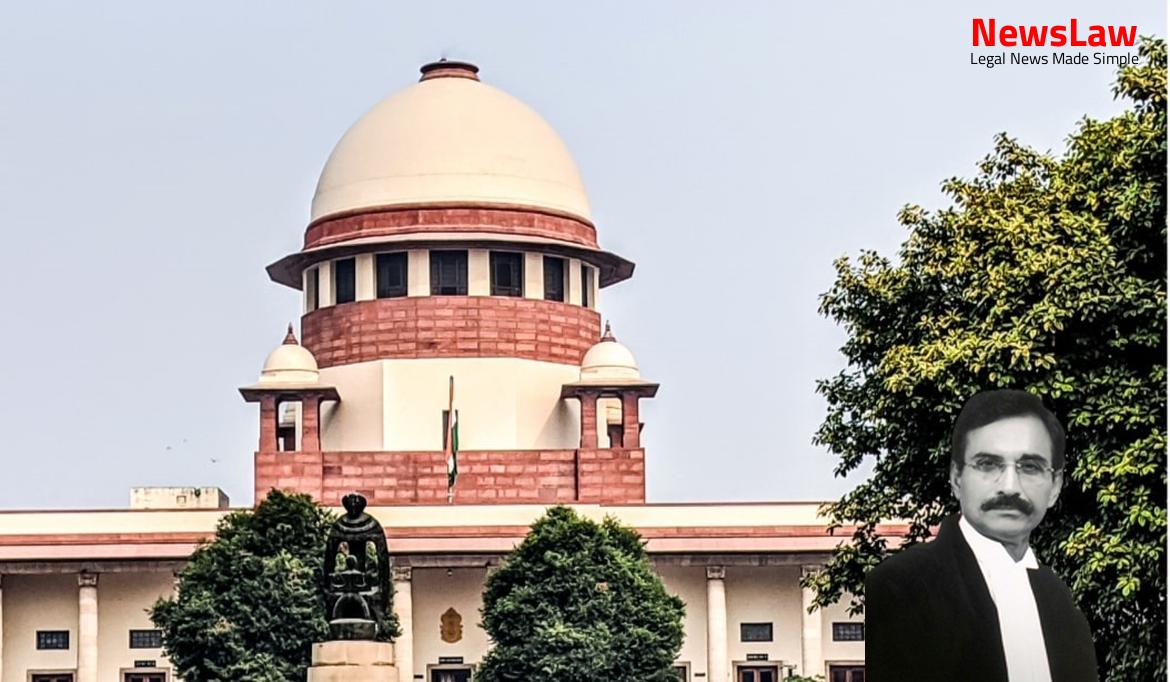The legal case delves into the critical analysis of judicial review in contractual matters, highlighting the importance of fairness and public interest in decision-making processes. The court’s emphasis on non-arbitrariness, transparency, and serving the public good underscores the need for a balanced and just legal framework. The case raises pertinent questions regarding state actions, contractual obligations, and the duty of public authorities towards the welfare of the citizens. Stay tuned to understand the intricate legal analysis and implications of this significant judgment.
Facts
- The Andhra Pradesh Electricity Regulatory Commission (State Commission) was directed by the APTEL to dispose of O.P. No.21 of 2015 filed by HNPCL for determination of capital cost and O.P. No.19 of 2016 filed by the appellants – DISCOMS for approval of the amended and restated Power Purchase Agreement (PPA) on merits.
- An Execution Petition (Execution Petition No.3 of 2018) was filed before the APTEL by HNPCL seeking execution of the order dated 16 March, 2018, and certain directions were passed by the APTEL in response.
- Civil Appeal No.5772 of 2018 challenging the APTEL’s order dated 16 March, 2018, was filed by the appellants – DISCOMS, but the court refused to interfere as it was deemed an interim order.
- Correspondence in 2012 between HNPCL and the State Government outlined steps for project development and the State’s support, including the purchase of 100% power from HNPCL’s plant.
- Negotiations in 2007 resulted in HNPCL offering 25% of power to the State and 75% to third parties, with the State agreeing to purchase all power generated by HNPCL.
- In 2011-2012, APCPDCL initiated a procurement process for power, with HNPCL emerging as the second lowest bidder, but was later discarded from the bidding process by the Bid Evaluation Committee due to the entire capacity being committed to APDISCOMS.
- APTEL allowed the appeal filed by HNPCL and directed the State Commission to dispose of O.P. No.21 of 2015 and O.P. No.19 of 2016.
- The appellants – DISCOMS have appealed against this decision.
- The appeal was admitted by the Court on 14 July, 2020, with instructions to decide expeditiously without considering the observations in the impugned order as conclusive.
- The impugned order passed by the Appellate Tribunal for Electricity in Appeal No 41/2019 was stayed until further orders.
Also Read: Presumption of Genuine Endorsements in Cheque Case
Arguments
- Shri C.S. Vaidyanathan, representing the appellants – DISCOMS, argues that APTEL erred in denying the right of withdrawal of the application.
- HNPCL had attempted to revive the project as a Merchant-power plant in 2007.
- The direction to purchase electricity from HNPCL at a high price would ultimately burden consumers.
- The order by APTEL, however, does not harm the appellants – DISCOMS according to Dr. Abhishek Manu Singhvi and Shri M.G. Ramachandran, representing HNPCL.
- APTEL directed the State Commission to decide on the pending applications on their merits.
- HNPCL was compelled by the State of Andhra Pradesh to supply 100% of the power generated.
- The project of HNPCL had achieved financial closure in 2010.
- Appellants – DISCOMS had the right to apply for withdrawal unless prohibited by law.
- Appellants cannot be bound by representations made by the State Government.
- The respondent’s counsel argues that the price of electricity purchased by the appellants would be determined by the State Commission taking various factors into consideration.
- The generation project provides employment for over 1000 people and supplies electricity in Andhra Pradesh.
- The contention of the appellants regarding withdrawing the application due to high capital cost and excess power availability is deemed factually incorrect by the respondent.
- The respondent is filing an application to change their consultant.
- The first unit of the power project of HNPCL (520 MW) was declared COD on 11 January, 2016.
- The appellants are purchasing power at a higher rate from generators ranked lower than HNPCL even though they could have purchased it at a lower rate under court orders.
- The conduct of the appellants is labeled as mala fide by the respondent.
- The respondent argues that the appellants’ actions are against public interest and violative of court orders.
- The respondent highlights the large idle investment due to the appellants’ actions.
- The argument that purchasing power from HNPCL would be costly is deemed erroneous by the respondent.
- The appellants recently entered into an MoU for the generation of 625 MW of electricity with SEMBCORP Energy India in December 2021.
Also Read: Medical Negligence and Compensation: A Landmark Decision
Analysis
- The State Commission is required to consider public interest while granting approval to the PPA.
- The legal doctrine of ‘malice in law’ is relevant in the present case.
- Withdrawal of an application may not be permissible if it frustrates a contract and defeats the rights of a party.
- The conduct of the appellants – DISCOMS is critical in the decision-making process.
- Regulations guide the determination of tariff and the factors to be considered.
- The State Commission’s approval must sub-serve public interest.
- Different considerations may arise for set-off claims or counterclaims.
- The State Commission has the authority to regulate the purchase and procurement of electricity.
- The Commission must consider fairness and justness of terms while granting approval.
- Agreements need the consent of the Commission to be valid as per the Reform Act.
- The requirement of due consideration of a legitimate expectation forms part of the principle of non-arbitrariness, necessary for the rule of law.
- The communication from Mr. G.P. Hinduja to the Chief Minister of Andhra Pradesh outlined a proposal for a power project.
- The discretion vested in an authority must be coupled with duty and regulated, even in contractual matters.
- Every legitimate expectation is a relevant factor that needs fair consideration in decision-making processes.
- The state is obligated to act fairly without ill will or malice in law.
- Public authorities must act fairly, objectively, non-arbitrarily, transparently, and non-discriminatorily, holding the duty to the public.
- All state actions, including contractual matters, must be non-arbitrary and justified under Article 14 to serve public good.
- State actions in contractual matters should not be excluded from judicial review under Article 14.
- The decision-making process in all state actions should consider the reasonable expectations of those affected to prevent abuse of power.
- The change in decision by public authorities must not be arbitrary, irrational, or against public interest.
- All powers of public office holders are meant for public good, and any conscious violation of law is malice in law.
- The appellants, DISCOMS, have acted contrary to public interest by defying court orders.
- Although the court could have initiated action against DISCOMS officials for contempt, they refrained from doing so.
- Question raised on whether public interest lies in purchasing power at a certain rate from HNPCL or a higher rate from KSK Mahanadi.
- Strong deprecation of DISCOMS conduct as instrumentalities of the State.
Also Read: Remand of Writ Petition for Restoration and Decision on Merits
Decision
- The State Commission is directed to decide O.P. No.21 of 2015 and O.P. No.19 of 2016 expeditiously within six months.
- The appeal is dismissed with costs of Rs.5,00,000/- imposed on the DISCOMS.
- DISCOMS are directed to start purchasing power from HNPCL at the rate of Rs.3.82 per unit until O.P. No.21 of 2015 and O.P. No.19 of 2016 are decided.
- Any pending Interlocutory Applications (I.As.) stand disposed of.
Case Title: SOUTHERN POWER DISTRIBUTION POWER COMPANY LIMITED OF ANDHRA PRADESH (APSPDCL) Vs. M/S HINDUJA NATIONAL POWER CORPORATION LIMITED (2022 INSC 136)
Case Number: C.A. No.-001844 / 2020



